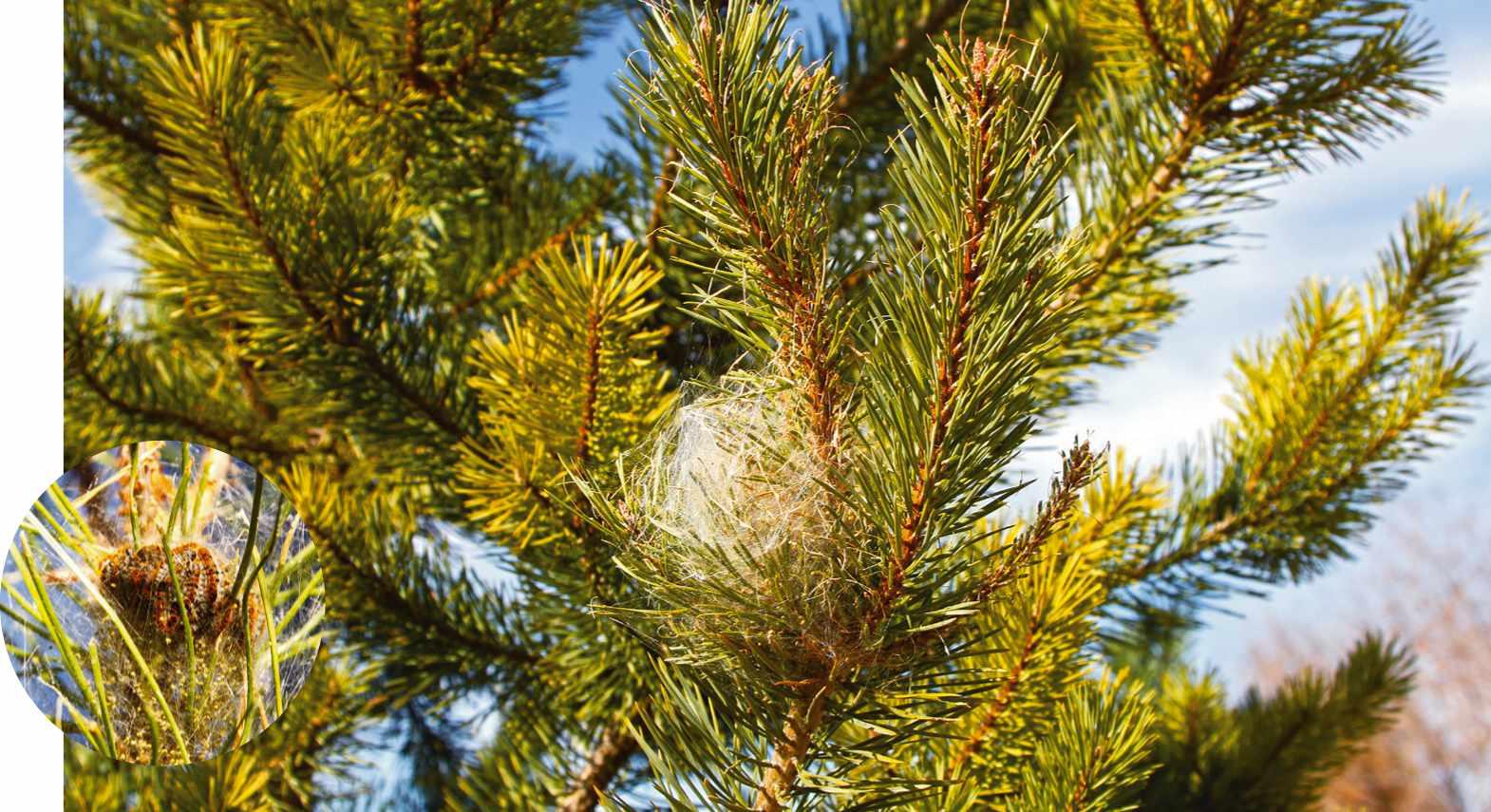
9 minute read
Clippings: news for gardeners
C l i ppi n g s Our roundup of the month’s latest gardening news and views Gardeners can save pollinators Caterpillar threat for pine trees
Hunt for missing GW episodes
The white, silken nests that pine processionary moths build in January are a clear sign of trouble
There is a hope, though: native predators are getting a taste for exotic prey. Two types of parasitoid insect have now been discovered on box moth caterpillars, native to East Asia but now common in the UK. Birds, ants and spiders have also been seen attacking the caterpillars.
Andrew Salisbury, Principal Entomologist for the RHS, says the balance is starting to tip. “We will begin to see much less damage as natural predators begin to pick up on it,” he says. “Hopefully that will happen before we lose too much of our box.”
Tony Kirkham, who ran Kew’s arboretum until his retirement last year, wants all trees arriving in the country held in closely monitored quarantine for at least a year before planting. “Once a tree goes into the landscape we walk away from it,” he told GW’s Growing Greener podcast. “If there’s a pest or disease on it, it’s too late.” L Visit GardenersWorld.com/podcast to listen to our podcast with tree expert Tony Kirkham. To report tree pests or diseases, go to treealert.forestresearch.gov.uk The Government is calling on gardeners to help stop the decline in pollinating insects. Environment Minister,
Rebecca Pow, told GW a key aim is to join up different habitats – and our gardens have an important role.
“There are a million hectares of land in our gardens, and gardeners can provide corridors between our gardens and the wider landscape.”
She suggests growing nectar-rich flowers and letting grass grow long. But charity Buglife says flying insect populations have already crashed by almost 60 per cent in 20 years, and more action is needed. “We need actions both big and small to help stop this devastating trend, before it’s too late,” said spokesperson Jamie Robins. There have been new calls for stricter import controls on trees, after the discovery of potentially devastating pine processionary moth on a shipment of pine trees from France.
While the species is not yet established in the UK, if it gets a foothold it could spell disaster for the country’s pines – including our only native, the Scots pine. As with its close relative, oak processionary moth – now well entrenched in London and the South East – the caterpillar stage has fine hairs that can cause painful rashes.
The infected trees have now been destroyed, and the Government has ended imports of pine and cedar trees from France and Italy. But the Woodland Trust says the interception is a stark reminder of the risks of importing trees. The Trust’s tree health and Once a tree goes invasive species Policy Lead, Alisha Anstee, into the landscape, we wants the Government walk away from it to invest in UK tree nurseries instead, so we don’t have to import trees from overseas. “Current policy isn’t working,” she says.
The Trust says UK trees now face at least 20 serious new pests and diseases from overseas. GW fans could help replace lost TV history as the hunt begins for dozens of missing episodes. Only a handful of recordings survive of shows made by presenters Percy Thrower, Clay Jones, Arthur Billit and Peter Seabrook. TV historian Chris Perry, of recovery specialists Kaleidoscope, is calling on viewers to search their stash of old recordings. “These programmes represent the reality of what life was really like in the 1970s,” he says. L Found a lost episode? Email Chris Perry at info @ tvbrain.info
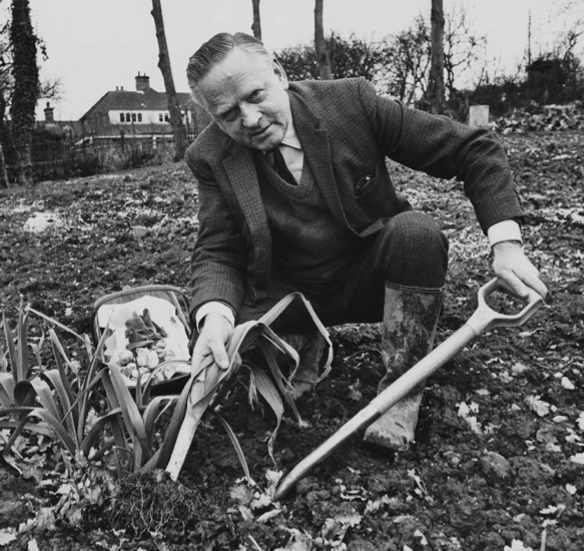

Ancient trees honour Queen
Boost for community gardens
Seventy ancient trees have been dedicated to the Queen for the Platinum Jubilee. This includes the Crom Yew in Northern Ireland (pictured) which is actually two trees, the eldest being an estimated 800 years old. L queensgreencanopy.org
Compost: look, no plastic bag
Hard-to-recycle plastic compost sacks could be history after the launch of potting compost packed in cardboard boxes instead. Fertile Fibre’s Plastic Free DIY Compost arrives as a coir block, plus paper bag of nutrients: to turn into compost, just add water. Business Development Manager, Sam Dent, says he wanted a radically different solution to plastic pollution, and hopes it will catch on. “We positively encourage people to imitate the idea,” he says. L Find out more at fertilefibre.com

With no water, Fertile Fibre’s Plastic Free DIY Compost is easy to carry from the front door to the garden
Community gardens across England and Wales are sharing a pot of almost £200,000 after the National Garden Scheme gave awards to 75 projects, from food banks and community orchards to projects prescribing gardening for health at GP surgeries. Entries for next year’s NGS Community Gardens Award open in October. ngs.org.uk
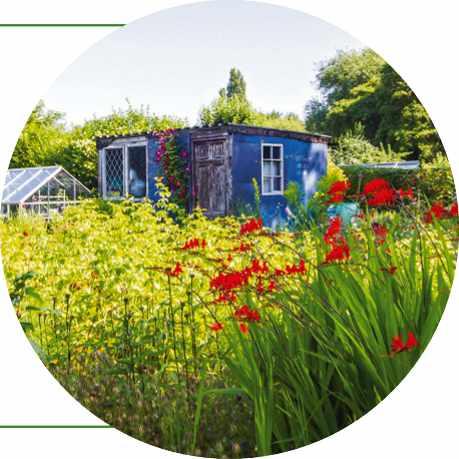
Earlier springs impact UK bird life
Scientists have confirmed what gardeners have suspected for a while: spring is now arriving up to three weeks earlier.
Beginning in 1947, a decades-long study of great tits in an Oxfordshire woodland recorded that year’s first egg as being laid on 27 April. This year, birds began laying nearly a month sooner. But Dr Ella Cole of Oxford University, who runs the study, says caterpillars are also emerging earlier – so there’s still food for hatchlings. “Great tits in the UK are adjusting well to climate change, but we don’t yet know what their limits are,” she says.
There’s also evidence climate change is affecting migration. Survey BirdTrack has shown that some swallows gave up their usual 6,000-mile migration to South Africa this winter and stayed in the UK, instead. RSPB wildlife gardening expert, Adrian Thomas, says that small actions, like mixing water and soil into mud pies during heatwaves to help house martins build nests, can help. “Birds can adapt,” he says. “Everything we do that can help is a win-win.”
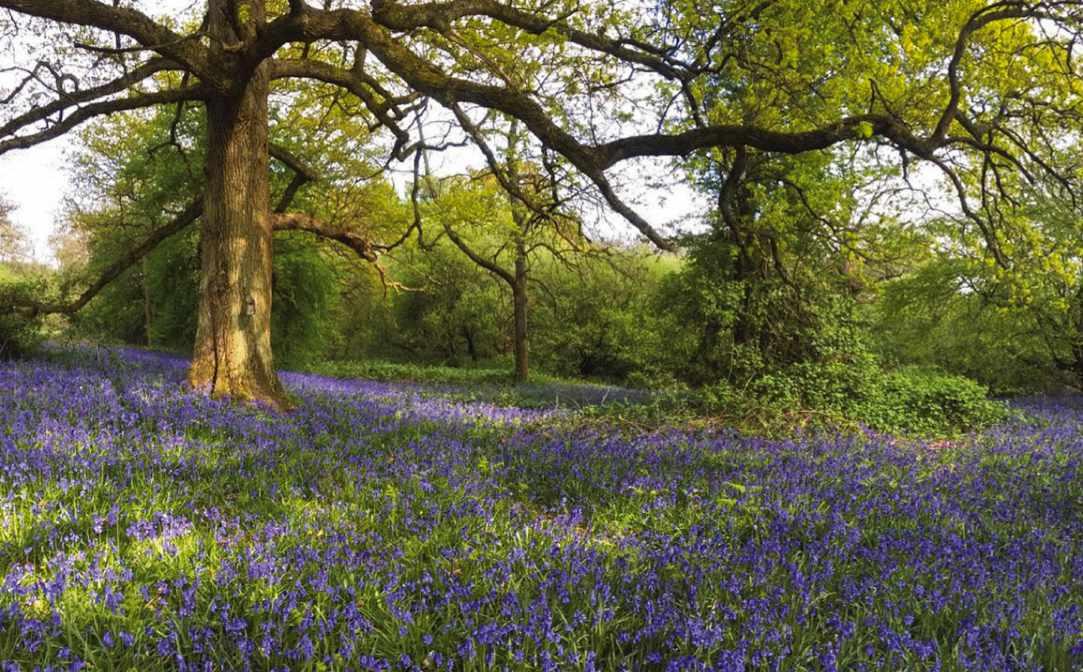
We July
My gardening world Deborah Meaden
Businesswoman Deborah Meaden has been a famously tough-but-kind Dragon
on BBC2’s Dragon’s Den since 2006. She
is outspoken about business and the
environment : her new series of The Big Green Money Show begins this month
on BBC Radio 5 Live. She lives in an 18th Century farmhouse on the Somerset Levels with her husband, Paul.
So, what’s your garden like?
We bought an old farmhouse that had virtually no garden, and all we’ve really done is allow it to become itself again. Around the house it’s quite formal, then beyond that it’s ver y natural. We love birds, we love wildlife, and you don’t move to the countr y to then make it sterile, so that creatures can’t live in it.
Which wild creatures do you love to see most in your garden?
We’re so lucky. When we first came here we had one swallow sitting on a wire – now we have swallows, swifts, house martins and owls. We even have the occasional otter visit us. We have a pond outside our back door and the otter comes up to the reeds: it’s not frightened of us at all. It eats all of our fish. And there’s a kingfisher – I’d never seen a kingfisher in my life. We walked out of the back door and there was a kingfisher, actually on our pond. It moved me to tears.
Are you a keen gardener?
I’m not at all green-fingered, but I’ll have a go. I’m actually quite good at weeding! I’ve learned to not get quite so stressed out about weeds. We’ve got a ver y big vegetable patch and it used to be pristine. Now, we’re more of the view that they’re not doing any harm, as long as they don’t affect the crop.
Does your garden help you get through your busy working life?
I start ever y day – rain, shine, ice or snow – getting a cup of tea in my hand and wandering around the garden. I do that religiously because it makes me a better person. It connects me with the world and gives me a moment of peace to get my mind together and to breathe some fresh air.
Having come through lockdown, what I really appreciated was the rhythm that gardening and nature give you. In a world where ever ything felt like it had stood still, the flowers still came up in spring, and the birds still sang.
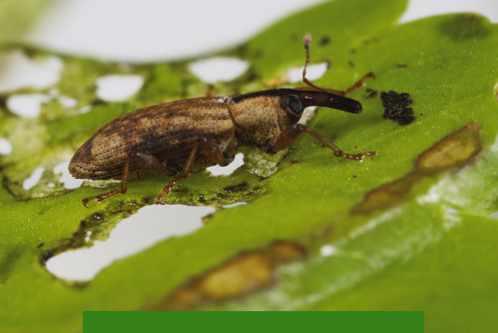
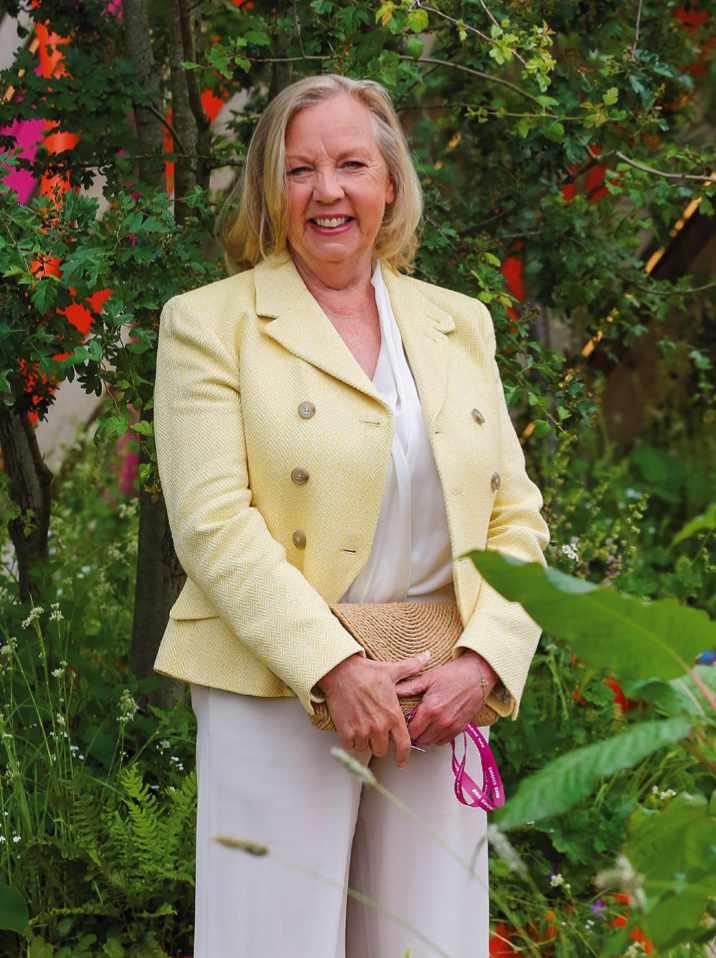
Deborah Meaden has turned much of her garden in Somerset over to nature
L Listen to our podcast with Deborah discussing wildlife gardening, at GardenersWorld.com/podcast

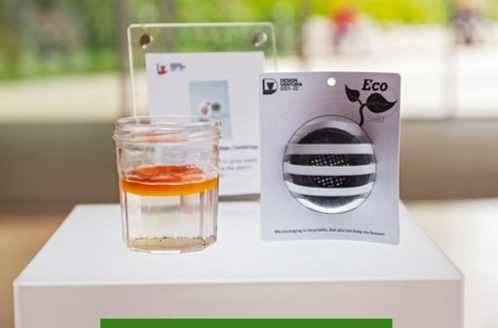
Garden for Grenfell
The site where the ruins of Grenfell Tower in West London now stand could become a memorial garden. The Grenfell Tower Memorial Commission surveyed survivors, bereaved families and local residents, and found 64 per cent wanted a garden as a lasting tribute to the 72 people who died in the 2017 fire.
Could you be a Collection holder?
Charity Plant Heritage is calling on gardeners to help protect plants, such as campanula and spirea, that aren’t protected by a National Collection, and are therefore at risk of losing varieties. Amateur gardener Jonathan Sheppard started his hollyhock National Collection two years ago, and since then has appeared on Gardeners’ World. “Anyone can be a National Collection holder,” says Plant Heritage Conservation Manager, Vicki Cooke. L Find out more at plantheritage.org.uk
1
GLASSHOUSES SAVED
Two Victorian glasshouses at risk of ‘catastrophic failure’ are safe again after the Royal Botanic Garden Edinburgh was awarded £4 million by the National Lottery Heritage Fund. rbge.org.uk
Growing crops on the moon may have moved a step closer to reality as scientists persuaded thale cress to germinate in lunar soil. bit.ly/moon-crops
SEEDY SUCCESS A new kind of ‘sprouter’ – a receptacle for sprouting seeds – has won pupils at a Cambridge secondary school a Design Museum award. It’s on sale at the museum shop from autumn. designmuseumshop.com
2
MOON GARDENING
3
FORCES OF WEEVIL South American weevils have been released on UK waterways to help fight against invasive floating pennywort weeds. bit.ly/wonder-weevil
4
DOING THE CHARLESTON Gardening legends such as Great Dixter Head Gardener, Fergus Garrett, are headlining the Charleston Festival of the Garden, near Brighton, 14-17 July. charleston.org.uk










